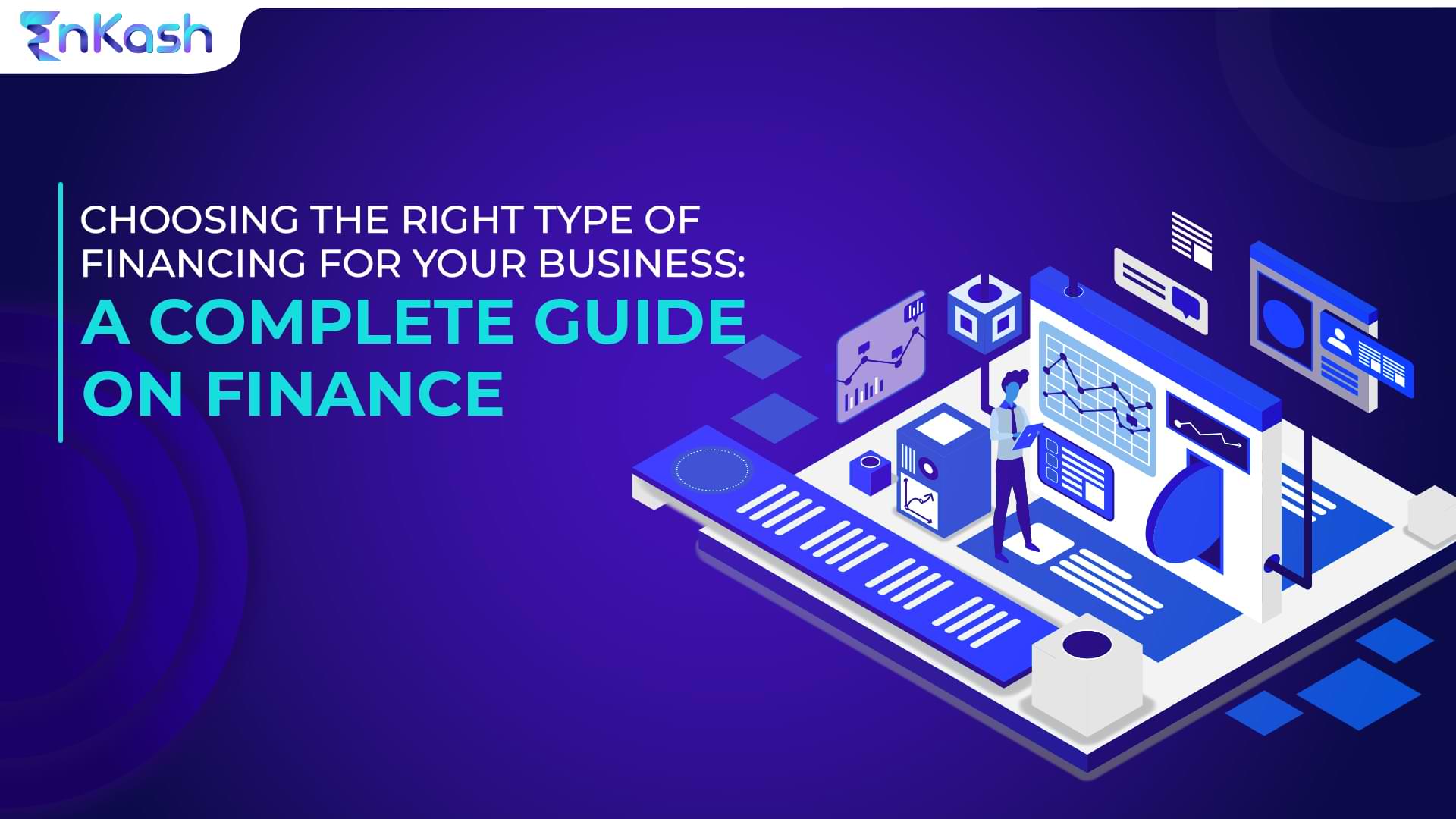Embarking on the journey of starting a business is a thrilling and fulfilling experience, however, it comes with its fair share of difficulties. Among the many obstacles that entrepreneurs face, perhaps the most daunting one is the challenge of selecting the best types of financing options to turn their vision into a reality.
Whether you are launching a new startup, or looking to expand an existing business, finding the right type of financing can be crucial to your success. With so many options available, it can be overwhelming to decide which type of financing is best suited for your business needs.
In this complete guide on finance, we will explore the pros and cons of different financing options and provide you with the information you need to choose the right type of financing for your business. From traditional bank loans to crowdfunding, we will cover everything you need to know to make an informed decision. So, without further ado, let us begin our exploration, delving into the topic at hand!
What are the different Types of Financing Options?
Before we dive into the specifics of different financing solutions, it is important to understand the different types of financing available. At the heart of financing, there exist two fundamental approaches – debt financing and equity financing – each with its own distinct set of advantages and disadvantages.
Debt financing entails taking out loans that must be repaid over a predetermined period with interest. This can include traditional bank loans, SBA loans, and other forms of financing where the borrower is required to make regular payments until the debt is repaid in full.
Equity financing, on the other hand, involves selling a stake in your business in exchange for funding. This can include angel investors, venture capitalists, and even crowdfunding campaigns where investors receive a stake in your business in exchange for their investment.
Traditional Financing Options – Bank Loans, SBA Loans, and Crowdfunding
Traditional financing options are some of the most common types of financing solutions available to small business owners. These include bank loans, SBA loans, and crowdfunding.
Bank loans are offered by banks and other financial institutions, and they are typically secured by collateral such as real estate or equipment. Bank loans can be a good option if you have a good credit score and can provide collateral to secure the loan.
SBA loans are another form of debt financing that is backed by the Small Business Administration. They are typically easier to qualify for than traditional bank loans, and they offer longer repayment terms and lower interest rates. Whilst the process of applying for financing can be a promising opportunity for business owners, it is important to note that the application procedure may be rather extensive and protracted.
In modern times, an innovative approach to financing has taken root and grown exponentially – crowdfunding. This unique method allows for the accumulation of funds from a vast number of individuals, predominantly using digital platforms.
Crowdfunding can be a good option if you have a unique business idea or product that resonates with a large audience.
Alternative Financing Options – Invoice Factoring, Merchant Cash Advance, and Peer-to-Peer Lending
Alternative financing options are fewer common types of financing options available to businesses, but they can be a good option if you are unable to qualify for a bank loan or SBA loan. These include invoice factoring, merchant cash advance, and peer-to-peer lending.
Invoice factoring is selling your outstanding bills to a factoring business in order to receive fast cash. If you need money right away and have numerous unpaid invoices, this may be a suitable choice.
Merchant cash advance involves receiving a lump sum of cash in exchange for a percentage of your future credit card sales. This can be a good option if you have a high volume of credit card sales and need cash quickly.
Peer-to-peer lending is obtaining funds from private investors via an online platform. If you need money right away and have strong credit, this can be a smart alternative.
Government Financing Options – Grants and Loans
Government financing options are another type of financing option to consider. These include grants and loans offered by federal, state, and local government agencies.
Grants are typically offered to businesses that meet certain criteria, such as being a minority-owned business or operating in a specific geographic area. They do not have to be repaid, but they can be difficult to qualify for.
Loans offered by government agencies, such as the Small Business Administration, can be a good option if you are unable to qualify for traditional bank loans. Compared to conventional bank loans, these loans often have lower interest rates and longer repayment durations.
Debt Financing vs. Equity Financing: Pros and Cons
When it comes to types of financing to choose between debt financing and equity financing, there are pros and cons to each option.
Debt financing can be beneficial because it allows you to maintain complete control over your business, and you can often secure lower interest rates if you have a good credit score. However, it can also be risky because if you are unable to make your loan payments, you could face serious consequences such as a damaged credit score or even losing your business.
Equity financing, on the other hand, can be beneficial because it allows you to bring on investors who can provide valuable expertise, connections, and resources to help your business grow. Additionally, you do not have to worry about making regular loan payments. However, it can also be risky because you will be giving up a portion of your business in exchange for funding, which means you will have to share control and potentially profits with your investors.
What are the right financing options for your business?
When it comes to choosing the right types of financing options for your business, there’s no one-size-fits-all solution. You will need to consider your business needs, your credit score, and your ability to repay the loan or attract investors.
It is important to do your research and shop around for the best financing option for your business. Consider the pros and cons of each option, and do not be afraid to ask questions or negotiate terms.
Tips for Preparing for the Financing Process
Before you apply for one of the many types of financing options available at your disposal, there are several things you can do to prepare. First, make sure you have a solid business plan that outlines your goals and projections for your business. You will also need to have a good credit score and a solid understanding of your financials, including your revenue, expenses, and cash flow.
It is also a good idea to gather any necessary documentation, such as your tax returns, financial statements, and business licenses.
Common Mistakes to Avoid When Seeking Financing
When seeking financing, there are several common mistakes to avoid. First, do not apply for more financing than you need. This can make it difficult to repay the loan and can damage your credit score if you are unable to make the payments.
Second, do not ignore your credit score. Your credit score plays a crucial role in your ability to qualify for financing, and it can also impact the interest rate you are offered.
Finally, do not be afraid to seek advice from professionals, such as financial advisors or accountants. They can help you navigate the different types of financing options available and ensure you are making the best decision for your business.
Conclusion – Finding the Best Financing Solution for Your Business
Choosing the best types of financing solutions for your business can be a daunting task, but it is an important one. By understanding the different options available and doing your research, you can make an informed decision that will help your business thrive.
Also Read: Easy Tips to Manage Small Business Finance
Remember to consider your business needs, your credit score, and your ability to repay the loan or attract investors. And do not be afraid to seek advice from professionals or negotiate terms. With the right financing solution, you can take your business to the next level and achieve your goals.














